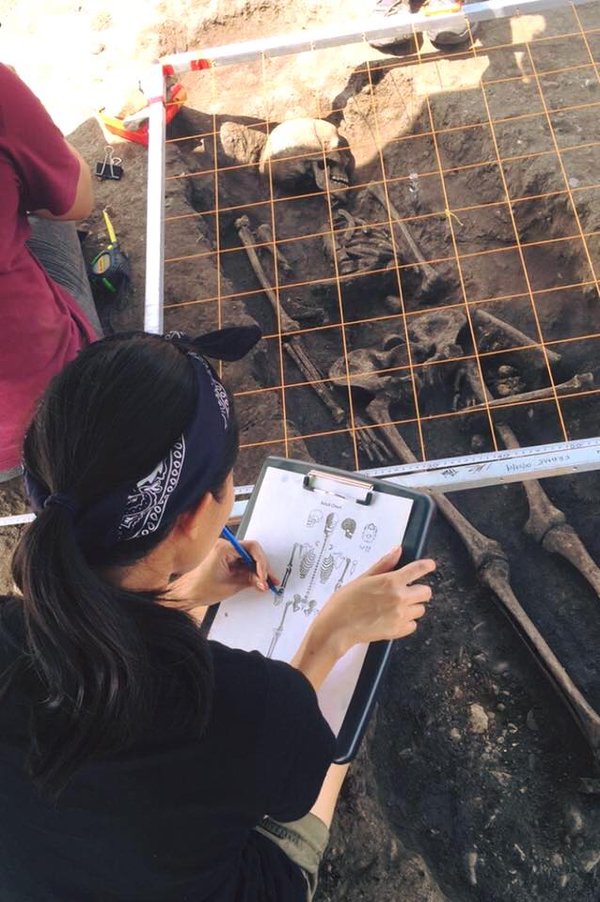
Submitted 13 March 2017 by Kori Lea Filipek
Field school sexual harassment policy: http://www.transylvaniabioarchaeology.org

Transylvania Bioarchaeology and the Romanian Institute for Archaeology (Cluj-Napoca) are now accepting applications for their Jucu Necropolis Excavations and Bioarchaeology Field School (June 25 - July 30th, 2017). This training program is non-profit that prides itself on a strong pedagogical foundation underscored by an ethical research-led framework and structured teaching strategies.
The Field School: The Jucu Necropolis project is based out of Cluj-Napoca, Romania in the heart of Transylvania. The vibrant, culture-rich city plays host to the lab-based portion of the project and the excavation is situated just outside of the city in the beautiful, ancient Transylvanian landscape. The cemetery is located between three archaeological settlements associated with different time periods: The Late Roman period, the Barbarian invasions, and early Medieval Christian migrations. Sample excavations revealed nearly 100 individuals, with an estimated 1000 burials yet to be revealed. In addition to the skeletal remains, cremation burials from the 8th – 9th centuries AD are also present in the cemetery. Our field school is very unique in that it trains all students and volunteers both in the excavation of human skeletal remains and the proper bioarchaeological post-excavation analysis on the skeletons they excavate themselves.
ALL PARTICIPANTS WILL BE PERSONALLY TRAINED IN THE FOLLOWING:
EXCAVATION • Basics of Field Archaeology • Bioarchaeological Ethics • Skeletal ID & Excavation • Site Drawing • Environmental Sampling • Photography • Site and Finds Recording • Identifying Grave Cuts • Site Surveying • And more!
LAB ANALYSIS • ID & Analysis of the Human Skeleton • Skeletal Recording • Ageing & Sexing Human Remains • Metric & Non-Metric Variation • Palaeopathology & Trauma • Biomolecular Methods • Bioarchaeological Theory & Research Skills
The field school price also includes a one-of-a-kind 5 day field trip through Transylvania exploring the beautiful Transylvanian countryside, archaeological sites, cities, glacial lakes in the Carpathian Mountains, a bear sanctuary, and of course trips to Dracula’s real castle and birthplace!
Lectures, Onsite Tutorials, and Workshops are taught by a wide range of experts in the field, including: Kori Lea Filipek (Durham University), Dr. Katie Tucker (Winchester University; Archaeological Institute Berlin), Dr. Ioan Stanciu (Romanian Institute for Archaeology), Dr. Julia Beaumont (Bradford University), Dr. Dave Errickson (Teesside University), Kelly Blevins (Arizona State University), Liam Lanigan (Centre for Geogenetics, Natural History Museum, Denmark), Jordan Snyder (University of Sheffield, Durham University), Megan Oliverson (Durham University), and more.
TO APPLY: Please visit our website at www.transylvaniabioarchaeology.org to download our online application
Copyright © 2024 American Association of Biological Anthropologists.
Site programming and administration: Ed Hagen, Department of Anthropology, Washington State University